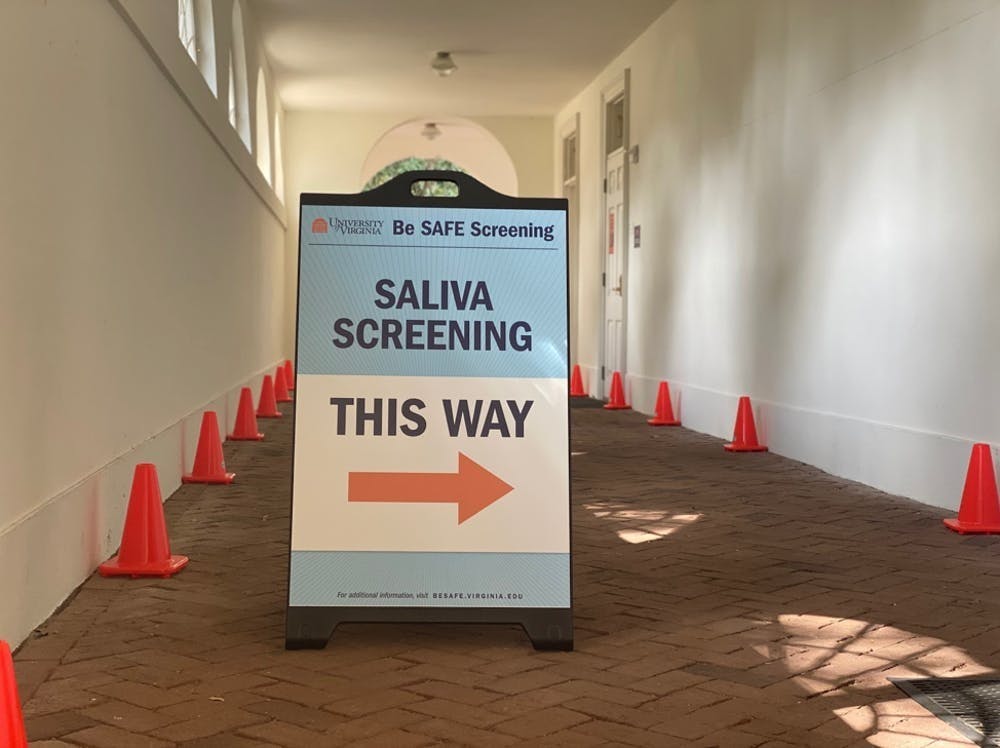中文版请点击此处
Beginning Jan. 11, all students living in the Charlottesville area will be required to participate in a weekly mandatory testing program, per a University-wide email sent Monday by Provost Liz Magill, Chief Operating Officer J.J. Davis and Department of Medicine Chair Mitch Rosner. This testing schedule will run through the spring, and students who do not comply with the testing program will be subject to sanctions, such as reduced access to University networks, classes, facilities and activities.
Last semester, students living off Grounds were selected at random for prevalence testing two to three times, while students living on Grounds were tested on a nine-day schedule implemented mid-October.
Mandatory weekly testing will begin Jan. 11 and all students — including graduate and professional students — will be required to report on a designated day of the week for testing starting Feb. 1. According to deputy University spokesperson Wes Hester, students will participate in saliva screening for during weekly mandatory prevalence testing appointments — symptomatic and asymptomatic close-contact testing will be continued using nasal swabs.
“Building on the success of last semester will require the same level of vigilance and commitment to the safety of the people around us,” the email said. “Fortunately, we now have the benefit of knowing that a plan like the one below can work if we stick together and do the right things for each other and for this community.”
Like the fall semester, students who test positive for COVID-19 during the spring will be exempt from testing for the first 90 days following the date of their positive test. Additionally, students will not be subject to disciplinary action for a positive test result or for providing any information during contact tracing.
Students will also have the option to stay at home or come to Charlottesville for the spring. Students who decide to come to Charlottesville will be required to follow and complete three steps regarding COVID-19 prior to arriving.
The first step will be to take and present a valid COVID-19 PCR test to the University before arriving on Grounds. Students can order a free test through the portal on LetsGetChecked. If a student tests positive within the 10 days before their arrival to Charlottesville, they will have to isolate at home and be fully cleared by their own local department of health before coming to Charlottesville.
While the University is offering a free LetsGetChecked test, PCR tests from other sources will also be accepted and must be uploaded to their HealthyHoos portal. Antibody and antigen tests will not be accepted.
Additionally, students will have to watch a video on University health and safety protocols and sign an agreement to comply with University policies designed to limit the spread.
“We are monitoring the progression of the virus in the country, the Commonwealth and this region closely,” the email said. “As of now, we are still on track to welcome students back in-person in the spring. If conditions demand a change to our plans, we will notify you by Jan. 15.”
This article has been updated.







